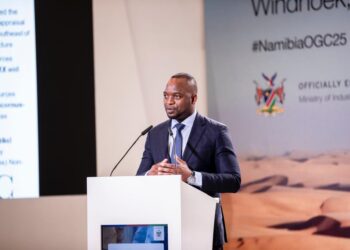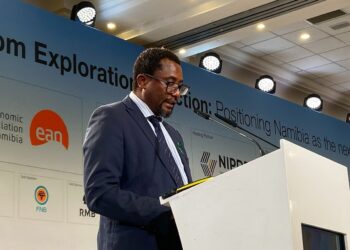
The government is calling for direct investment in ICT innovation infrastructure, including start-up support, incubators, and technology hubs, as part of its national digital transformation agenda.
Information and Communication Technology Minister Emma Theofelus made the appeal at the Huawei Partner Connect Gala Dinner in Windhoek on Tuesday.
Theofelus said building a strong local ICT sector depends on creating systems that support innovation and entrepreneurship.
“We envision a Namibia where start-ups thrive, where innovation is supported, and where our youth perceive ICT not only as a field of study but as a field of opportunity,†she said, urging partners to help establish innovation hubs, incubators and centres of excellence.
She warned that innovation in ICT will not advance without investment in skills development.
The minister pointed to the Namibia LEAP Digital Talent Program, launched with Huawei in 2024, as a model for expanding digital skills training. The programme aims to create a pipeline of locally trained developers, network specialists, and ICT professionals.
“I envision moving a digitally illiterate young Namibian, to semi-digitally literate, to fully digitally literate, to being fully digitally skilled and then an expert all in one go. We know this is possible. It has been done. We only need to put the necessary resources towards ensuring young Namibians access this opportunity,†said Theofelus.
She said government welcomes industry-led training programmes and partnerships that align with national capacity-building goals.
“Through programmes like LEAP, and through ongoing collaboration with our partners, we seek to build a strong, skilled, and competitive ICT workforce,†she added.
The minister made it clear that bridging the ICT gap cannot be left to the state alone and called on telecommunications firms, ICT companies, and educational institutions to jointly develop long-term support for digital innovation.
“Bridging the digital divide is not a task for the government alone. It necessitates collaboration with industry leaders, educational institutions, development partners, and indeed, the private sector,†said Theofelus.
While innovation and skills took centre stage, she also outlined the government’s plans to improve digital infrastructure.
Theofelus reiterated a N$40-million allocation to the Universal Service and Access Fund to support high-speed internet expansion in underserved regions.
“Connectivity must not be a privilege but a right and an enabler of education, healthcare, and economic participation,†she said.
The ICT ministry’s strategy, endorsed by the wider government, places innovation ecosystems and human capital development at the core of efforts to build a competitive digital economy.
Theofelus said partnerships with firms like Huawei, which support local skills and infrastructure development, are essential to achieving this vision.
“With unity of purpose and partnership, we can ensure that Namibia is not left behind in the fourth industrial revolution,†said Theofelus.
Meanwhile, Huawei Managing Director Micheal Zhang said it is essential to strengthen partnerships through technology and cooperation.
“Together we have to work to transform our society into a digital future, which will allow our next generations and those to come to thrive and continue pushing our country forward in this global village,” he said.











